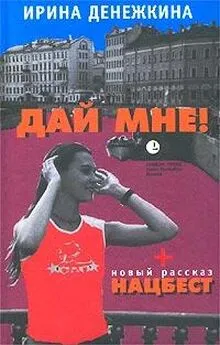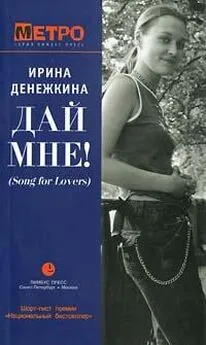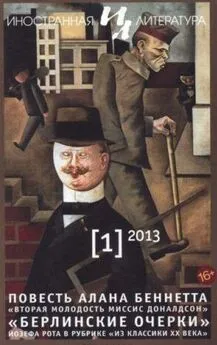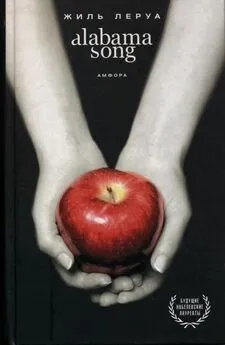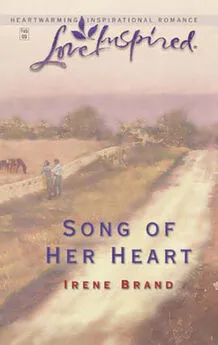Toni Morrison - Song of Solomon
- Название:Song of Solomon
- Автор:
- Жанр:
- Издательство:неизвестно
- Год:неизвестен
- ISBN:нет данных
- Рейтинг:
- Избранное:Добавить в избранное
-
Отзывы:
-
Ваша оценка:
Toni Morrison - Song of Solomon краткое содержание
Song of Solomon - читать онлайн бесплатно полную версию (весь текст целиком)
Интервал:
Закладка:
Milkman opened the parcel Grace had fixed for him and took out a cookie. A little piece of paper fluttered to the ground. He picked it up and read: “Grace Long 40 Route 2 three houses down from the Normal School.” He smiled. That’s why it took her so long to wrap up four cookies. He bit into one of them and sauntered along, crumpling the napkins and Grace’s invitation into a wad. The questions about his family still knocked around in his head like billiard balls. If his grandfather, this Jake, was born in the same place his wife was, in Shalimar, why did he tell the Yankee he was born in Macon, thereby providing him with the raw material for the misnaming? And if he and his wife were born in the same place, why did Pilate and his father and Circe all say they “met” on that wagon? And why did the ghost tell Pilate to sing? Milkman chuckled to himself. That wasn’t what he was telling her at all; maybe the ghost was just repeating his wife’s name, Sing, and Pilate didn’t know it because she never knew her mother’s name. After she died Macon Dead wouldn’t let anybody say it aloud. That was funny. He wouldn’t speak it after she died, and after he died that’s all he ever said—her name.
Jesus! Here he was walking around in the middle of the twentieth century trying to explain what a ghost had done. But why not? he thought. One fact was certain: Pilate did not have a navel. Since that was true, anything could be, and why not ghosts as well?
He was near the road leading to the town now, and it was getting dark. He lifted his wrist to look at his watch and remembered that Grace had not given it back to him. “Damn,” he murmured aloud. “I’m losing everything.” He stood still, trying to make up his mind whether to go back for it now or later. If he went now, he’d be forced to return in deep darkness. Totally defenseless before a hit from Guitar. But it would be a real bother to have to come all the way back here—where no car could make it—tomorrow when he was going to leave. But Guitar might be—
“I can’t let him direct and determine what I do, where I go or when. If I do that now I’ll do it all my life and he’ll run me off the earth.”
He didn’t know what to do, but decided finally that a watch was not worth worrying about. All it could do was tell him the time of day and he really wasn’t interested. Wiping cookie crumbs from his mustache, he turned into the main road, and there, outlined in cobalt blue, stood Guitar. Leaned, rather, against a persimmon tree. Milkman stopped, surprised at the calm, steady beat of his heart—the complete absence of fear. But then, Guitar was cleaning his fingernails with a harmless match stick. Any weapon he had would have to be hidden in his denim jacket or pants.
They looked at each other for a minute. No, less. Just long enough for the heart of each man to adjust its throb to the downbeat of the other. Guitar spoke first.
“My man.”
Milkman ignored the greeting. “Why, Guitar? Just tell me why.”
“You took the gold.”
“What gold? There wasn’t any gold.”
“You took the gold.”
“The cave was empty, man. I got down on my stomach and looked in that pit. I put my hands—”
“You took the gold.”
“You’re crazy, Guitar.”
“Angry. Never crazy.”
“There wasn’t any gold!” Milkman tried hard not to shout.
“I saw you, motherfucker.”
“Saw me what?”
“Take the gold.”
“Where?”
“In Danville.”
“You saw me with gold in Danville?”
“I saw you with gold in Danville.”
“You’ve got to be kidding. What was I doing with it?”
“Shipping it.”
“Shipping it?”
“Yeah. Why the game, man? You just greedy, like your old man? Or what?” Guitar’s eyes rested on the last butter cookie in Milkman’s hand. He frowned and began to breathe through his lips.
“Guitar, I didn’t ship no gold. There wasn’t any gold to ship. You couldn’t have seen me.”
“I saw you, baby. I was in the station.”
“What fuckin station?”
“The freight station in Danville.”
Milkman remembered then, going to look for Reverend Cooper, looking all over for him. Then going into the station house to see if he’d gone, and there helping a man lift a huge crate onto the weighing platform. He started to laugh. “Oh, shit. Guitar, that wasn’t no gold. I was just helping that man lift a crate. He asked me to help him. Help him lift a big old crate. I did and then I split.”
Guitar looked at the cookie again, then back into Milkman’s eyes. Nothing changed in his face. Milkman knew it sounded lame. It was the truth, but it sounded like a lie. A weak lie too. He also knew that in all his life, Guitar had never seen Milkman give anybody a hand, especially a stranger; he also knew that they’d even discussed it, starting with Milkman’s not coming to his mother’s rescue in a dream he had. Guitar had accused him of selfishness and indifference; told him he wasn’t serious, and didn’t have any fellow feeling—none whatsoever. Now he was standing there saying that he willingly, spontaneously, had helped an old white man lift a huge, heavy crate. But it was true. It was true. And he’d prove it.
“Guitar, why am I here? If I was shipping gold back home, why am I here dressed like this? Would I be roaming around in the country like a fool with a crate of gold off somewhere? Would I? What the fuck would I do that for and then come here?”
“Maybe you shipped the gold here, you jive-ass.”
“What the fuck are you talking about?”
“I looked! I saw it! You hear me? I drove down there, followed you there, because I had a funny feeling that you were pulling a fast one. I wasn’t sure, but I felt it. If I was wrong, I’d help you get it. But I wasn’t wrong. I got into Danville that afternoon. I drove right past the freight depot and there you were in your little beige suit. I parked and followed you into the station. When I got there I saw you shipping it. Giving it to the man. I waited until you left, and I went back in and asked the cracker if my friend”—he slurred the word—“had shipped a crate to Michigan. The man said no. Just one crate on the load, he said. Just one crate. And when I asked him where it was going, all he could remember was Virginia.” Guitar smiled. “The bus you caught wasn’t headed for Michigan. It was headed for Virginia. And here you are.”
Milkman felt whipped. There was nothing to do but let it play.
“Was my name on the crate?”
“I didn’t look.”
“Would I send a crate of gold to Virginia— gold , man.”
“You might. You did.”
“Is that why you tried to kill me?”
“Yes.”
“Because I ripped you off?”
“Because you ripped us off! You are fuckin with our work!”
“You’re wrong. Dead wrong.”
“The ‘dead’ part is you.”
Milkman looked down at the cookie in his hand. It looked foolish and he started to throw it away, but changed his mind. “So my Day has come?”
“Your Day has come, but on my schedule. And believe it: I will run you as long as there is ground. Your name is Macon, but you ain’t dead yet.”
“Tell me something. When you saw me in the station, with the crate, why did you back off and hide? Why didn’t you just walk up to me? It could have been settled there.”
“I told you. I had this funny funny feeling.”
“That I was going to cut you out?”
“Cut us out. Yes.”
“And you believe I did?”
“Yes.”
“Back there in the woods you were angry.”
“Yes.”
“Now you’re going to wait till the gold comes.”
“Yes.”
“And I pick it up.”
“You won’t be able to pick it up.”
“Do me a favor. When it gets here. Check it first to see if there’s gold in it.”
“First?”
“Or last. But before you haul it all the way back home.”
“Don’t worry yourself about it.”
“One more thing. Why the message? Why’d you warn me with a message at the store?”
“You’re my friend. It’s the least I could do for a friend.”
“My man. I want to thank you.”
“You’re welcome, baby.”
Milkman slipped into Sweet’s bed and slept the night in her perfect arms. It was a warm dreamy sleep all about flying, about sailing high over the earth. But not with arms stretched out like airplane wings, nor shot forward like Superman in a horizontal dive, but floating, cruising, in the relaxed position of a man lying on a couch reading a newspaper. Part of his flight was over the dark sea, but it didn’t frighten him because he knew he could not fall. He was alone in the sky, but somebody was applauding him, watching him and applauding. He couldn’t see who it was.
When he awoke the next morning and set about seeing to the repair of his car, he couldn’t shake the dream, and didn’t really want to. In Solomon’s store he found Omar and Solomon shaking sacks of okra into peck baskets and he still felt the sense of lightness and power that flying had given him.
“Got a belt for your car,” said Omar. “Ain’t new, but it ought to fit.”
“Hey, that’s good. Thanks, Omar.”
“You leavin us right away?”
“Yeah, I have to get on back.”
“You see that Byrd woman all right?”
“Yeah, I saw her.”
“She help you any?” Omar wiped the okra fuzz from his hands onto his trousers.
“No. Not much.”
“Well, King Walker say he be down this morning and put the belt on. You probably ought to get a good checkup on that car once you get on the road.”
“I plan to.”
“Sweet give you any breakfast?” asked Solomon.
“She tried, but I wanted to get over here early to see about the car.”
“What about a cup a coffee; there’s a full pot in back.”
“No, thanks. I think I’ll walk around a little till he comes.”
It was six-thirty in the morning and the town was bustling as though it were high noon. Life and business began early in the South so the coolest part of the day could be taken advantage of. People had already eaten, women had already washed clothes and were spreading them on bushes, and in a few days, when the school in the next town opened, children at this hour would already be walking, running over the roads and fields to class. Now they were sauntering about, doing chores, teasing cats, throwing bread to stray chickens, and some of them were playing their endless round games. Milkman could hear them singing and wandered off toward them and the huge cedar that reared up over their heads. Again their sweet voices reminded him of the gap in his own childhood, as he leaned against the cedar to watch them. The boy in the middle of the circle (it seemed always to be a boy) spun around with his eyes closed and his arm stretched out, pointing. Round and round he went until the song ended with a shout and he stopped, his finger pointing at a child Milkman could not see. Then they all dropped to their knees and he was surprised to hear them begin another song at this point, one he had heard off and on all his life. That old blues song Pilate sang all the time: “O Sugarman don’t leave me here,” except the children sang, “Solomon don’t leave me here.”
Milkman smiled, remembering Pilate. Hundreds of miles away, he was homesick for her, for her house, for the very people he had been hell-bent to leave. His mother’s quiet, crooked, apologetic smile. Her hopeless helplessness in the kitchen. The best years of her life, from age twenty to forty, had been celibate, and aside from the consummation that began his own life, the rest of her life had been the same. He hadn’t thought much of it when she’d told him, but now it seemed to him that such sexual deprivation would affect her, hurt her in precisely the way it would affect and hurt him. If it were possible for somebody to force him to live that way, to tell him, “You may walk and live among women, you may even lust after them, but you will not make love for the next twenty years,” how would he feel? What would he do? Would he continue as he was? And suppose he were married and his wife refused him for fifteen years. His mother had been able to live through that by a long nursing of her son, some occasional visits to a graveyard. What might she have been like had her husband loved her?
Читать дальшеИнтервал:
Закладка:

